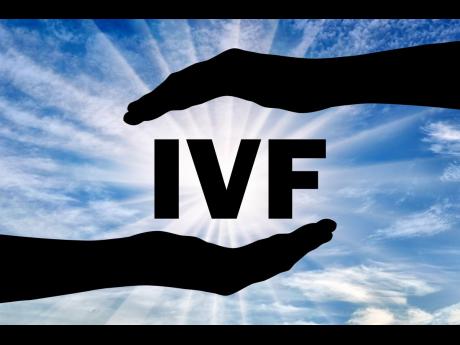Treatment for infertility
Infertility is not an inconvenience; it is a disease of the reproductive system that impairs the body’s ability to perform the basic function of reproduction. Most infertility cases, 85 to 90 per cent, are treated with conventional therapies such as drug treatment or surgical repair of reproductive organs.
If you have fertility problems, the treatment you are offered will depend on what is causing the problem, and what is available from your local doctors.
According to Dr Kamali Carroll, embryologist at the Hugh Wynter Fertility Management Unit, Faculty of Medical Sciences at The University of the West Indies, Mona campus, treatment to help a person conceive naturally will depend on many factors, including the age of the person, how long infertility has lasted, personal preferences, and their general state of health.
“The first strategy a couple trying to conceive may wish to try is having sexual intercourse more often around the time of ovulation. Typically, the menstrual cycle lasts for about 28-32 days. Counting from the first day of the last period, a female will usually ovulate anywhere between day 11 and day 21. Any person whose cycle is shorter than 21 days or longer than 35 days should see their doctor for an evaluation,” Dr Carroll said.
However, timing intercourse may not be sufficient on its own to help a couple conceive. Treatments will depend on the underlying cause of infertility. In females, doctors can prescribe fertility drugs to regulate or induce ovulation.
If the fallopian tubes are blocked or scarred, surgical repair may make it easier for eggs to pass through. A patient may also be advised to undergo in vitro fertilization (IVF).
“In infertile couples where women have blocked or absent fallopian tubes, or where men have low sperm counts, IVF offers a chance at parenthood to couples who until recently would have had no hope of having a biologically related child,” Dr Carroll said.
Like other extremely delicate medical procedures, IVF involves highly trained professionals with sophisticated laboratories and equipment, and the cycle may need to be repeated to be successful.
In IVF, an egg is fertilised outside the body. Fertility medicine is taken to encourage the ovaries to produce more eggs than usual. The eggs are removed from the ovaries and fertilised with sperm in a laboratory. A fertilised egg (embryo) is then returned to the womb to grow and develop.
In other instances, doctors may also treat endometriosis with laparoscopic surgery. They make a small incision in the abdomen and insert a thin, flexible microscope with a light at the end, called a laparoscope. The surgeon can then remove implants and scar tissue, which may reduce pain and aid fertility.
If conception does not occur, it can lead to stress and possibly depression. Some physical effects may also result from treatment for infertility. Another complication can be an ectopic pregnancy.
Multiple pregnancies may also result from fertility treatment. If there are too many embryos, carrying all of them to term may cause health problems during the pregnancy.

